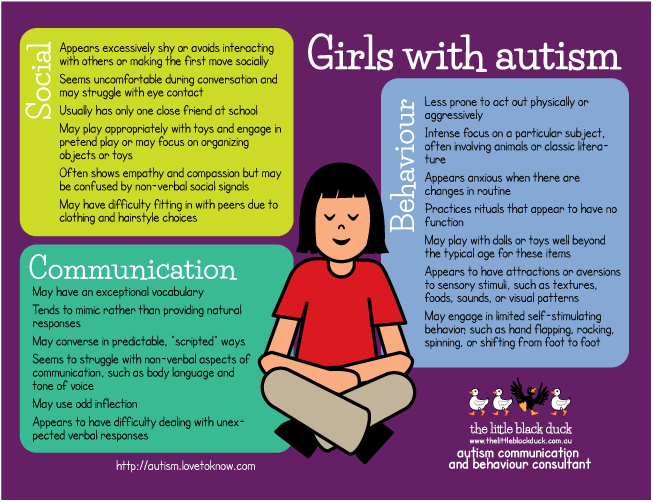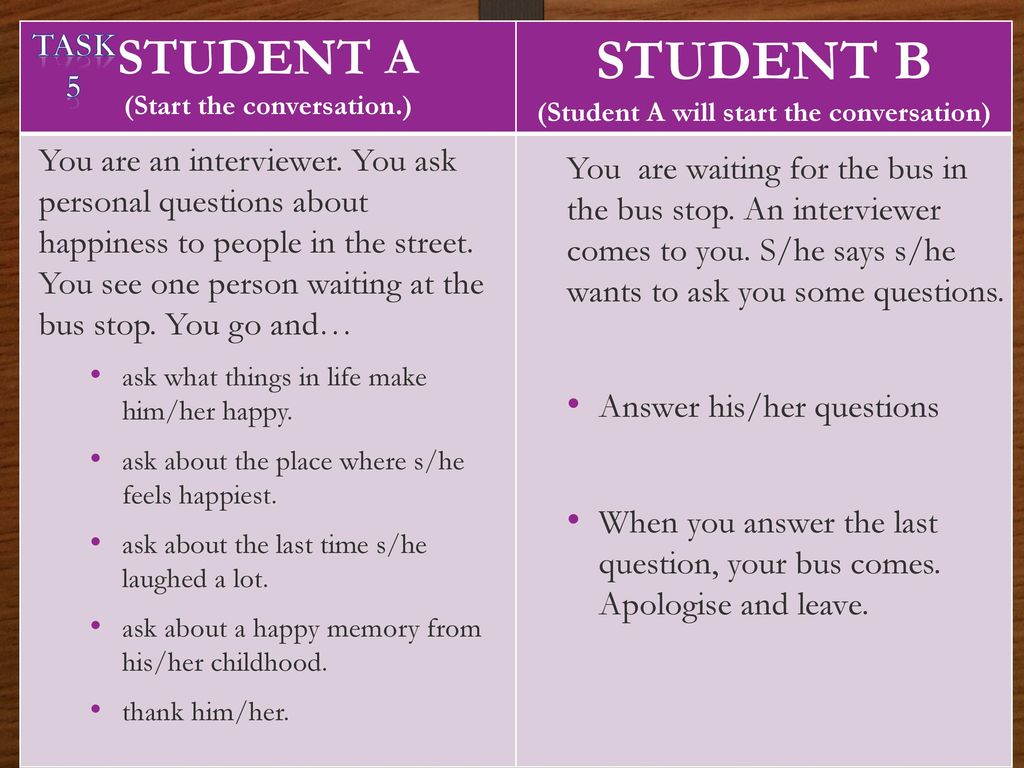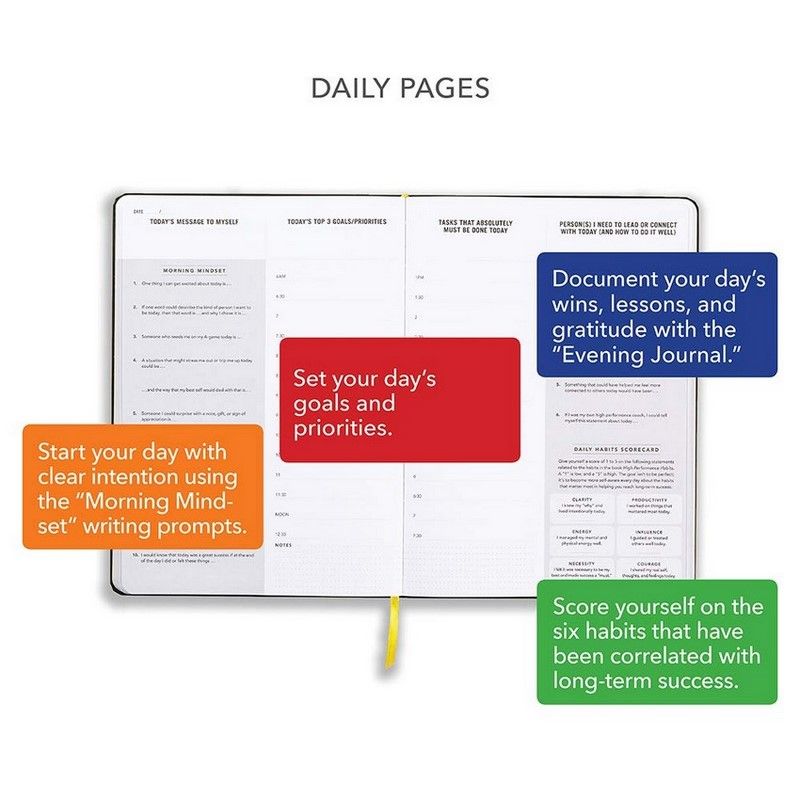How to cope in difficult times
Surviving Tough Times by Building Resilience
stress
Whether you’re facing a global or personal crisis—or a mix of both—building resilience can help you cope with stress, overcome adversity, and enjoy the better days to come.
Experiencing hardship and adversity
Lately, the world seems to be lurching from one crisis to another. We’ve experienced a global pandemic, dramatic changes to how we conduct our daily lives, economic uncertainty, and political and social turmoil, as well as an array of natural disasters. Then there are personal traumas that people are also dealing with, such as the loss of a loved one, declining health, unemployment, divorce, violent crime, or tragic accidents. For many us, this is a time of unprecedented struggle and upheaval.
Whether the source of disruption in your life is a global emergency or a personal tragedy—or both—living through difficult times can take a heavy toll on your mood, health, and outlook. It can leave you feeling helpless and overwhelmed by stress and anxiety. You may be painfully grieving all that you’ve lost, flooded by a slew of difficult, conflicting emotions, or uncertain about how to move on with your life. You may even feel that your life is totally out of control and you’re powerless to affect whatever may happen next.
While there’s no way to avoid sorrow, adversity, or distress in life, there are ways to help smooth the rough waters and regain a sense of control. Resilience is the ability to cope with the loss, change, and trauma that have been inevitable parts of life even before these extraordinary times. Building resilience can help you better adapt to life-changing events, cope with turbulent times, and bounce back from hardship and tragedy.
With over 25,000 licensed counselors, BetterHelp has a therapist that fits your needs. It's easy, affordable, and convenient.
GET 20% OFF
Online-Therapy.com is a complete toolbox of support, when you need it, on your schedule. It only takes a few minutes to sign up.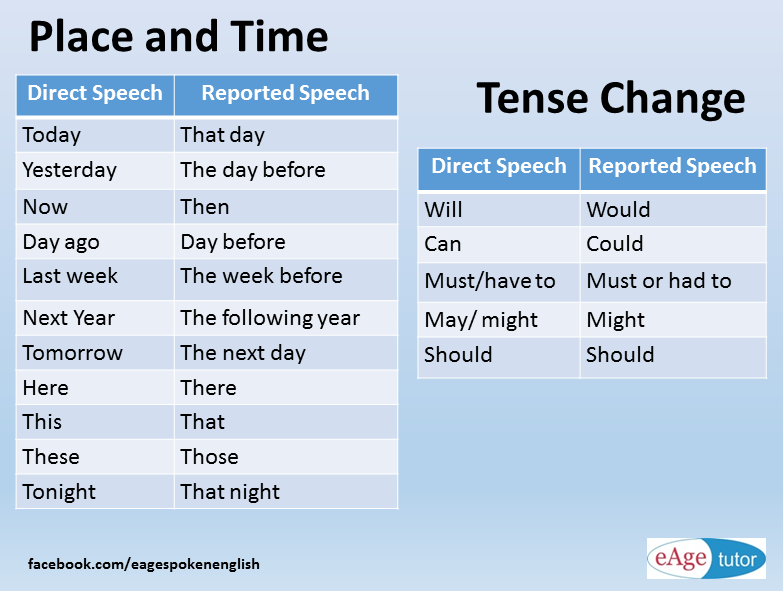
GET 20% OFF
Teen Counseling is an online therapy service for teens and young adults. Connect with your counselor by video, phone, or chat.
GET 20% OFF
The role of resilience in times of crisis
Why do some people seem to be better able to cope in these troubling times than others? While everyone’s situation is different, it is true that people with resilience tend to have a higher tolerance for the emotional distress generated by hard times. The more resilient you are, the better you’re able to tolerate the feelings of stress, anxiety, and sadness that accompany trauma and adversity—and find a way to rebound from setbacks.
[Read: How to Cope with Traumatic Events]
We all go through bad times, we all experience disappointment, loss, and change, and we all feel sad, anxious, and stressed at various times in our lives. But building resilience can help you to maintain a positive outlook, face an uncertain future with less fear, and get through even the darkest days.
Building resilience
If you’re more sensitive to emotional distress and are finding it difficult to cope with hardship or adversity, it’s important not to think of it as some kind of character flaw. Resilience isn’t a macho quality and it isn’t fixed; it’s an ongoing process that requires effort to build and maintain over time.
Unless you’ve faced adversity in your life before, it’s unlikely you’ve had the need or opportunity to develop resilience. Drawing on past experiences can help you cope with the challenges you’re facing today. Even if you’ve struggled to cope with adversity in the past, you may at least be able to recognize some of the ways of coping that DON’T help, such as trying to numb your feelings with drugs or alcohol.
While it’s often difficult to imagine anything good coming out of traumatic experiences, building resilience can help you find any positives in the difficulties you’ve faced. Surviving hardships can teach you important things about yourself and the world around you, strengthen your resolve, deepen your empathy, and in time enable you to evolve and grow as a human being.
Building resilience can also help you to:
- Stay focused, flexible, and productive, in both good and bad times.
- Feel less afraid of new experiences or an uncertain future.
- Manage and tolerate strong emotions outside your comfort zone, even those you’d rather avoid like anger or despair.
- Strengthen your relationships and improve your communication skills, especially under pressure.
- Bolster your self-esteem.
- Be confident you’ll eventually find a solution to a problem, even when one isn’t immediately apparent.
You can develop and improve these qualities of resilience at any time, regardless of your age, background, or circumstances. The following tips can help you face hardships with more confidence, better cope with these tumultuous times, and make it through to the brighter, more hopeful days ahead.
Building resilience tip 1: Practice acceptance
While we all react to stressful events in different ways, many of us try to protect ourselves by refusing to accept the truth of what’s happening. After all, by denying that you’re even experiencing a crisis, you can kid yourself that you still have some sense of control over what are usually uncontrollable events.
After all, by denying that you’re even experiencing a crisis, you can kid yourself that you still have some sense of control over what are usually uncontrollable events.
While denial can have some positive functions—it can give you an opportunity to come to terms with the shock of a traumatic event, for example—over time, it will just prolong your pain. Staying in denial will prevent you from adapting to your new circumstances, stop you from seeking solutions or taking action, and stifle the healing process.
Accept the situation
Change is an inevitable part of life and many aspects of the changing world are outside your individual control. You can’t control the spread of a virus, for example, the pace of social change, or how the economy behaves. While it can be tough to acknowledge, railing against events or circumstances outside your control will only drain you of energy and leave you feeling anxious and hopeless. Accepting your situation, on the other hand, can free you up to devote your energy to the things that you do have control over.
Focus on things within your control. Make a list of all the things you can’t control and give yourself permission to stop worrying about them. Instead, focus on the action that you can take. If you’re unemployed, you can’t control whether the ideal job appears in the wants ads or whether an employer will grant you an interview. But you can control how much time and effort you put into searching for work or brushing up on your skills. Similarly, if a loved one is facing a life-threatening illness, you may have to relinquish control to the medical experts, but you can still focus on providing your loved one with as much emotional support as possible.
Accept change by looking to your past. Looking back at examples where you’ve coped with uncertainty and change before can help you accept your current situation. Perhaps you suffered a painful breakup in the past and were eventually able to move on with your life, or you lost a job and ended up finding a better one? Examining your past successes can also help you see past the current crisis and derive some confidence that you’ll be able to pull through again.
Accept your feelings
It’s tempting to believe that the best way to get through hard times is by ignoring painful emotions and “putting on a brave face”. But unpleasant emotions exist whether you choose to acknowledge them or not. Trying to prevent your emotions from surfacing will only fuel your stress, delay acceptance of your new situation, and prevent you from moving on.
By allowing yourself to feel your emotions, you’ll find that even the most intense, upsetting feelings will pass, the trauma of these tough times will start to fade, and you’ll be able to find a path forward. Talk to someone you trust about what you’re experiencing or use HelpGuide’s Emotional Intelligence Toolkit to reconnect with your emotions.
Grieve your losses
Undergoing tough times usually involves some kind of loss. Whether it’s the loss of a loved one, the loss of a job, or the loss of your old life, it’s important you allow yourself the opportunity to grieve. Only by facing your grief—acknowledging and mourning your losses—will you be able to heal and eventually move on with your life.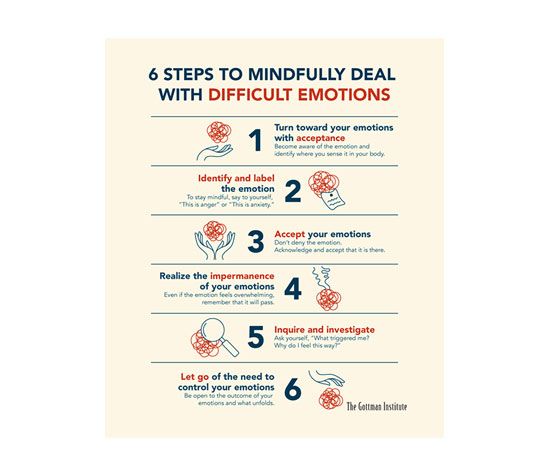
Tip 2: Reach out to others
Connecting with friends and family when you’re going through tough times can help ease stress, boost your mood, and make sense of all the change and disruption. Instead of feeling like you’re facing your problems alone, you can draw strength and build resilience from having others to lean on.
The people you reach out to don’t need to have answers to the problems you’re facing; they just need to be willing to listen to you without judging. In fact, what you talk about or the words used are often unimportant. It’s the human connection—eye contact, a smile, or a hug—that can make all the difference to how you’re feeling.
Prioritize relationships. Nothing carries the same health benefits as connecting face-to-face with someone who is caring and empathetic. These days, however, it’s not always possible to see friends and loved ones in person. If you’re kept apart by geography, lockdown, or travel restrictions, for example, reach out to others via phone, video chat, or social media.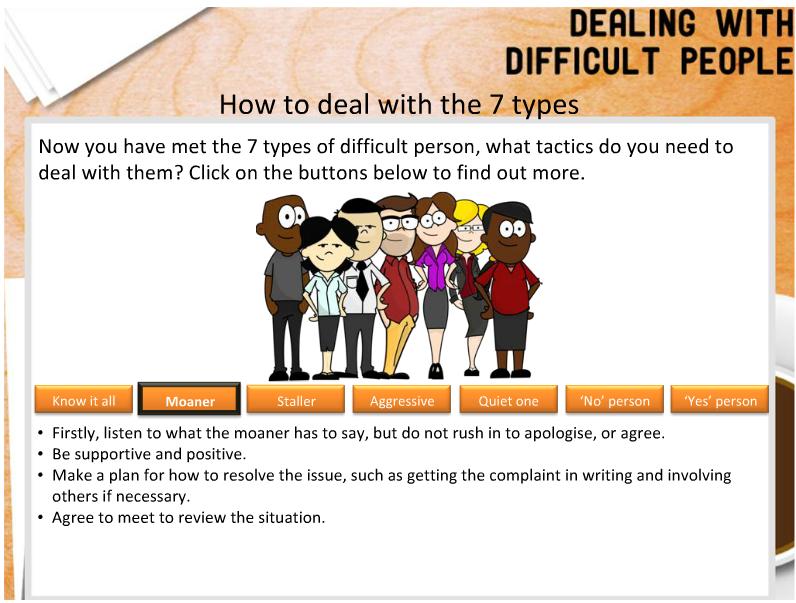
Don’t withdraw in tough times. You may be inclined to retreat into your shell when you’re facing challenges in your life. You may fear being a burden to friends and loved ones or feel too exhausted to reach out. But try to keep up with social activities even when you don’t feel like it. Good friends won’t consider you a burden—they’re more likely to feel flattered that you trust them enough to confide in them.
Try to avoid negative people. Some friends are good listeners, kind and empathetic. Others seem to only fuel negative emotions, leaving you feeling even more stressed, anxious, or panicky. Try to avoid anyone who magnifies your problems, criticizes, or makes you feel judged.
Expand your social network. Even though relationships are vital for good mental health, building resilience, and getting through tough times, many of us feel that we don’t have anyone to turn to in times of need. But there are plenty of ways to build new friendships and improve your support network. If you know others who are lonely or isolated, be the one to take the initiative and reach out.
If you know others who are lonely or isolated, be the one to take the initiative and reach out.
Tip 3: Invest in self-care
Living through tough times can be both mentally and physically draining. Constantly being in a heightened state of stress can lead to serious health problems, impact your immune and digestive systems, increase your risk of heart attack and stroke, and lead to burnout, a state of emotional, physical, and mental exhaustion.
Since the body and mind are so closely linked, investing in self-care is an important part of building resilience and getting through times of great stress. When your body feels strong and healthy so, too, will your mind.
Get enough exercise. When you’re dealing with chronic stress, you likely carry it somewhere in your body. Maybe your muscles are tense, you have back or neck pain, frequent headaches, insomnia, heartburn, or an upset stomach? Getting regular exercise not only releases powerful endorphins in the brain to improve your mood, but it can also help to ease tension in the body and counteract the physical symptoms of stress.
Practice a “mind and body” relaxation technique. Practices such as yoga, tai chi, and meditation blend deep breathing and body awareness to help you relieve stress and bring your nervous system back into balance. Try one of HelpGuide’s audio meditations to boost your physical and emotional well-being.
[Listen: Inner Strength Meditation]
Improve your sleep. When you’re facing adversity, nothing wears down your resilience like missing out on a good night’s sleep. Often, improving your daytime habits and taking the time to relax and unwind before bed can help you sleep better at night.
Eat well. There are no specific foods that can help build resilience and weather tough times. Rather, it’s your overall dietary pattern that’s important. Eating lots of processed and takeout food can take a toll on your brain and mood, sapping your energy, and weakening your immune system. A healthy diet, on the other hand—one that’s low in sugar and rich in healthy fats—can give you the energy and focus to tackle the challenges you’re facing.
Manage your overall stress levels. Taking steps to manage your overall stress can break the hold it has over your life, improve your mood, and help you build the resilience you need to hold up under pressure at this time.
Tip 4: Look for meaning and purpose
It’s easy to get overwhelmed by frightening headlines or consumed by the crisis you’re facing. But whatever your circumstances, it doesn’t have to define you as a person. You are not your crisis. By pursuing activities that bring purpose and meaning to your life, you can keep your problems in perspective, prevent them from overwhelming you, and maintain your identity.
Everyone is different so we all have different ways of experiencing purpose and meaning. Don’t limit yourself by others’ expectations; pursue activities that are important to you and add satisfaction to your life.
Give help to others. When you’re in the midst of a crisis, it’s common to feel powerless and helpless. By proactively helping others, you can regain a sense of control as well as find purpose in your life. In fact, giving support can be just as beneficial as receiving support. Try volunteering, helping others in your neighborhood, giving blood, donating to a charity, or marching for a cause that’s important to you.
By proactively helping others, you can regain a sense of control as well as find purpose in your life. In fact, giving support can be just as beneficial as receiving support. Try volunteering, helping others in your neighborhood, giving blood, donating to a charity, or marching for a cause that’s important to you.
Pursue your hobbies and interests. In turbulent times, it’s important not to cast aside interests that nourish your spirit. For many of us, it’s these things that define us as individuals and bring meaning to our lives. Whether it’s playing a sport, caring for a pet, an artistic or musical endeavor, home improvement projects, or spending time in nature, continuing to draw pleasure from your pastimes adds to your ability to cope with the stress of difficult times.
Tip 5: Stay motivated
An important part of coping with adversity and making it through tough times is to foster qualities of persistence and endurance. Tough times don’t last forever, but by their very nature they’re rarely over quickly. As you plot a road through the darkness, you need to find ways to stay motivated and persevere.
As you plot a road through the darkness, you need to find ways to stay motivated and persevere.
Deal with your problems one step at a time. If a problem is too big to deal with all at once, try breaking it down into smaller, more manageable steps. If your problem seems to have no possible solution, you can still take action by drawing up a list, researching more about the subject, or seeking the advice of a trusted friend or loved one.
Celebrate small wins. To stay motivated and positive as you navigate stormy seas in life, take a moment to savor your small successes. If you’re looking for work, for example, getting an interview isn’t as meaningful as landing a job, but it’s a sign of progress, a step in the right direction. Noting these small wins can give you a welcome break from all the stress and negativity you’re facing and encourage you to keep going.
[Read: Finding Joy During Difficult Times]
Try to maintain a hopeful outlook.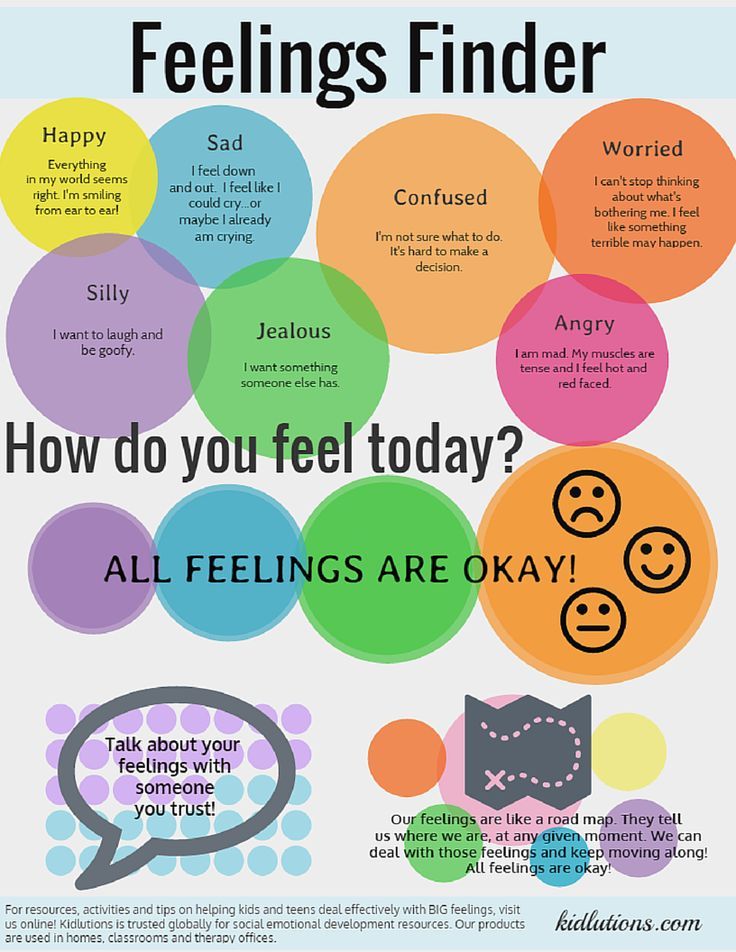 While it’s difficult to stay positive and hopeful in the midst of a crisis, many of us tend to blow our problems out of proportion and make them seem even more negative than they really are. Try taking a step back and examining your situation as an outsider. Are their rays of hope that you can focus on? Instead of worrying about what you fear may happen, try visualizing what you’d like to happen instead.
While it’s difficult to stay positive and hopeful in the midst of a crisis, many of us tend to blow our problems out of proportion and make them seem even more negative than they really are. Try taking a step back and examining your situation as an outsider. Are their rays of hope that you can focus on? Instead of worrying about what you fear may happen, try visualizing what you’d like to happen instead.
Express gratitude. It may sound trite, but even when you’re experience terrible times, it’s usually possible to find one thing you can be grateful about—the love of a pet, for example, a beautiful sunset, or a caring friend. Taking a moment to acknowledge your gratitude for such small things can provide respite from the stress and really boost your mood.
Be kind to yourself. Everyone adjusts to change and upheaval differently. Don’t criticize your coping skills or beat yourself up for every mistake you make. Self-compassion is an important part of building resilience, so go easy on yourself.
Authors: Lawrence Robinson and Melinda Smith, M.A.
- References
Trauma- and Stressor-Related Disorders. (2013). In Diagnostic and Statistical Manual of Mental Disorders. American Psychiatric Association. https://doi.org/10.1176/appi.books.9780890425787.x07_Trauma_and_Stressor_Related_Disorders
Norris, F. H. “Epidemiology of Trauma: Frequency and Impact of Different Potentially Traumatic Events on Different Demographic Groups.” Journal of Consulting and Clinical Psychology 60, no. 3 (June 1992): 409–18. https://doi.org/10.1037//0022-006x.60.3.409
Macedo, Tania, Livia Wilheim, Raquel Gonçalves, Evandro Silva Freire Coutinho, Liliane Vilete, Ivan Figueira, and Paula Ventura.
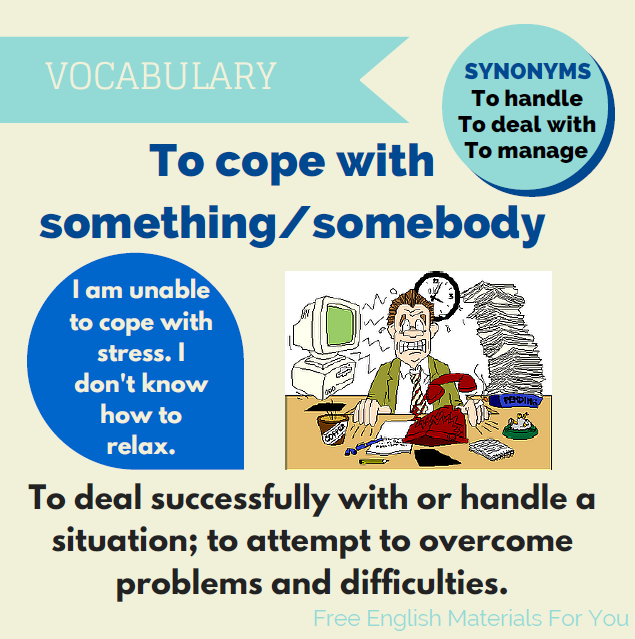 “Building Resilience for Future Adversity: A Systematic Review of Interventions in Non-Clinical Samples of Adults.” BMC Psychiatry 14, no. 1 (August 14, 2014): 227. https://doi.org/10.1186/s12888-014-0227-6
“Building Resilience for Future Adversity: A Systematic Review of Interventions in Non-Clinical Samples of Adults.” BMC Psychiatry 14, no. 1 (August 14, 2014): 227. https://doi.org/10.1186/s12888-014-0227-6Joyce, Sadhbh, Fiona Shand, Joseph Tighe, Steven J Laurent, Richard A Bryant, and Samuel B Harvey. “Road to Resilience: A Systematic Review and Meta-Analysis of Resilience Training Programmes and Interventions.” BMJ Open 8, no. 6 (June 14, 2018): e017858. https://doi.org/10.1136/bmjopen-2017-017858
Lee, Tak Yan, Chau Kiu Cheung, and Wai Man Kwong. “Resilience as a Positive Youth Development Construct: A Conceptual Review.” The Scientific World Journal 2012 (May 2, 2012): 390450. https://doi.org/10.1100/2012/390450
Forbes, Sarah, and Deniz Fikretoglu. “Building Resilience: The Conceptual Basis and Research Evidence for Resilience Training Programs.” Review of General Psychology 22, no. 4 (December 1, 2018): 452–68. https://doi.org/10.
 1037/gpr0000152
1037/gpr0000152Shatté, Andrew, Adam Perlman, Brad Smith, and Wendy D. Lynch. “The Positive Effect of Resilience on Stress and Business Outcomes in Difficult Work Environments.” Journal of Occupational and Environmental Medicine 59, no. 2 (February 2017): 135–40. https://doi.org/10.1097/JOM.0000000000000914
Hoegl, Martin, and Silja Hartmann. “Bouncing Back, If Not beyond: Challenges for Research on Resilience.” Asian Business & Management 20, no. 4 (September 1, 2021): 456–64. https://doi.org/10.1057/s41291-020-00133-z
Silver, Kristin E., Meera Kumari, Danette Conklin, and Gunnur Karakurt. “Trauma and Health Symptoms in a Community Sample: Examining the Influences of Gender and Daily Stress.” The American Journal of Family Therapy 46, no. 2 (2018): 153–67. https://doi.org/10.1080/01926187.2018.1461031
Sansbury, Brittany S, Kelly Graves, and Wendy Scott. “Managing Traumatic Stress Responses among Clinicians: Individual and Organizational Tools for Self-Care.
 ” Trauma 17, no. 2 (April 1, 2015): 114–22. https://doi.org/10.1177/1460408614551978
” Trauma 17, no. 2 (April 1, 2015): 114–22. https://doi.org/10.1177/1460408614551978Bower, Gordon H., and Heidi Sivers. “Cognitive Impact of Traumatic Events.” Development and Psychopathology 10, no. 4 (December 1998): 625–53. https://doi.org/10.1017/S0954579498001795
Ley, Clemens, María Rato Barrio, and Andreas Koch. “‘In the Sport I Am Here’: Therapeutic Processes and Health Effects of Sport and Exercise on PTSD.” Qualitative Health Research 28, no. 3 (February 1, 2018): 491–507. https://doi.org/10.1177/1049732317744533
Hegberg, Nicole J., Jasmeet P. Hayes, and Scott M. Hayes. “Exercise Intervention in PTSD: A Narrative Review and Rationale for Implementation.” Frontiers in Psychiatry 10 (2019): 133. https://doi.org/10.3389/fpsyt.2019.00133
Building your resilience – A roadmap for adapting to life-changing situations. (American Psychological Association)
Tolerating Distress – Tools to help you face your feelings during difficult times.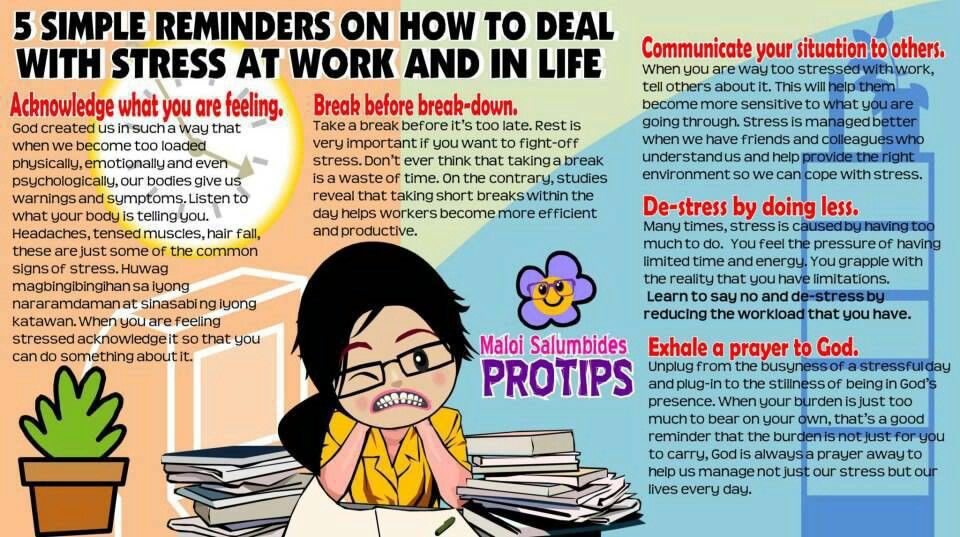 (Centre for Clinical Interventions)
(Centre for Clinical Interventions)
Five Science-Backed Strategies to Build Resilience – Ways to build resilience and confront emotional pain. (Greater Good Magazine, UC Berkeley)
Last updated: January 9, 2023
Going Through Hard Times? Try These 10 Strategies
Hard times, whatever that means to you, are a common part of life. Developing coping skills can better help you get through them.
Maybe you’re experiencing a financial setback. Or someone you love might be facing a health challenge. Maybe you’ve lost your job, or an unhealthy relationship is weighing you down.
You might not be in complete control of these difficulties, but you have a choice in how they impact the way you feel.
Overcoming these challenges is possible. Mental health experts have offered 10 tips to cope with hard times:
If you’re facing a challenging time, it’s natural to feel overwhelmed.
“When faced with emotional pain or frustration, this can feel like you are going to be in it forever,” says Boston-based psychotherapist Angela Ficken. “That thought alone can increase the severity of emotions someone is feeling and make it worse.”
“That thought alone can increase the severity of emotions someone is feeling and make it worse.”
Reframing your perspective — seeing things from a new angle — can help you step away from this mindset.
“Whatever you’d say to your best friend, now say the same to yourself,” Ficken suggests. “An example of a reframe would be, ‘I know it feels like this will be forever, and I know logically it’s not. I have been through hard things before and came out OK. I know I will get through this, too.’”
“Emotions don’t go away if we ignore them. They come out later and in ways that we don’t quite understand,” explains Rachelle Heinemann, a mental health counselor in Brooklyn, New York. “The best thing to do when the going gets tough is to acknowledge your emotional experience and allow yourself to feel.”
Holding feelings in may make the situation more difficult to cope with in the long run, explains Donna Novak, PsyD, a clinical psychologist in Simi Valley, California.
“Let yourself feel all the emotions. Sadness, frustration, grief,” she suggests. “Allow yourself space to cry, hurt, and be upset.”
Sadness, frustration, grief,” she suggests. “Allow yourself space to cry, hurt, and be upset.”
Feeling and expressing your emotions is an essential part of healing, says Jennifer Weaver-Breitenbecher, a clinical psychologist in Rhode Island.
“This isn’t a time to try and be strong; that’s a fallacy. Feeling the feelings is tough but imperative,” she says. “Allow yourself to grieve or process whatever is happening.”
Most difficult situations have a possible upside or a pending end date. For example, the last day of a tough school year.
Sam Bolin, a licensed clinical social worker in Linthicum Heights, Maryland, tells Psych Central that focusing on the future positives “is an effective strategy for individuals who are going through a hard time.”
Bolen recommends positive projection. This refers to focusing on the possible positive outcomes of a situation.
He suggests using guided meditation or general meditation for at least 5 minutes every day. While meditating, he says, try to focus on one or more desired outcomes for the situation.
A positive projection requires turning positive intention into words. For example:
- The survival rate for my illness is 85%, and if I follow my treatment plan, I can be in that group.
- There aren’t many job openings, but I have a great resume and a strong track record.
- The publisher rejected my manuscript, but this is a typical part of the process, and it means I’m trying.
“As you become better at staying focused in your meditation […] the detail of your process will become more specific to accomplishments that contribute to improving your life,” Bolen says.
While it might feel like the best response to a difficult situation is to take charge, sometimes letting go can help preserve your mental health.
“One way to help yourself get through hard times is to let yourself off the hook for things,” says Billy Roberts, a mental health therapist in Columbus, Ohio. “Ironically, many people are even harsher critics of themselves when times are harder or when they are under a lot of stress. ”
”
Gina Marie Guarino, a mental health counselor in New York City, recommends practicing acceptance.
“Hard times come with challenges that are out of your control, and the harder you try to control the outcome of a difficult time, the more stress you are inflicting onto yourself,” she says.
While knowing when to let go is helpful, so is working on gaining “a sense of meaning and purpose,” Roberts tells Psych Central. “A sense of meaning and forward momentum helps keep us energized and hopeful.”
The trick is to identify the positive amid a crisis that’s out of your hands.
A job loss might mean you’ve got more time to help your children with their homework. Or maybe you’re motivated to make healthy lifestyle changes in response to a new medical diagnosis.
Even if meaning and purpose aren’t immediately obvious, you can consider making a point to look for them in everyday moments.
Rituals can anchor you in a time of change and uncertainty.
Healthy rituals could include:
- adding a regular mindfulness practice
- committing to daily morning workouts
- practicing different relaxation techniques
- scheduling coffee with a friend once a week
- journaling every night
- getting 15 minutes of sunlight or fresh air every day
In a romantic relationship, rituals can also provide some comfort during trying times.
“Couples need to proactively protect their relationship with healthy rituals like date nights without the kids, time not talking about work, and things that help them stay connected and balanced,” explains William Schroeder, co-founder of Just Mind Counseling in Austin, Texas. “It is beneficial to notice what helps you get back on track.”
Your support system is all those people who care about you and can be there for you to offer practical help, a word of advice, or encouragement.
“It is vital to focus on one’s relationships as these people can be very helpful,” says Bryan Bruno, a psychiatrist in New York City. “It can feel isolating to be going through a hard time, but surrounding yourself with a trusted support system is very necessary.”
Feeling connected can boost your mood and help you cope with challenging situations.
“The most important factor that will determine how we get through hard times will be whether or not we feel connected and supported,” says Heinemann. “Go ahead, call or text that friend. Sit with them saying nothing or saying everything.”
“Go ahead, call or text that friend. Sit with them saying nothing or saying everything.”
If you rather find support from other sources, consider joining a support o community group.
“There are support groups available for individuals experiencing hardships,” offers Novak. “By joining a community, you will not be alone, and you will not feel alone. You will be around people who understand and support you.”
When times are tough, finding a healthy outlet to express yourself can make coping easier.
“Find a healthy way to express yourself and your emotions. This could be through journaling, having a close friend or family member to talk to, or practicing self-care,” suggests Novak.
Heinemann agrees that journaling is an effective stress-management tool. “Journaling is a great way to get thoughts out of your head and brings a sense of internal organization. You can follow prompts or write free form.”
Identifying what has helped you cope in the past can support you in your current situation.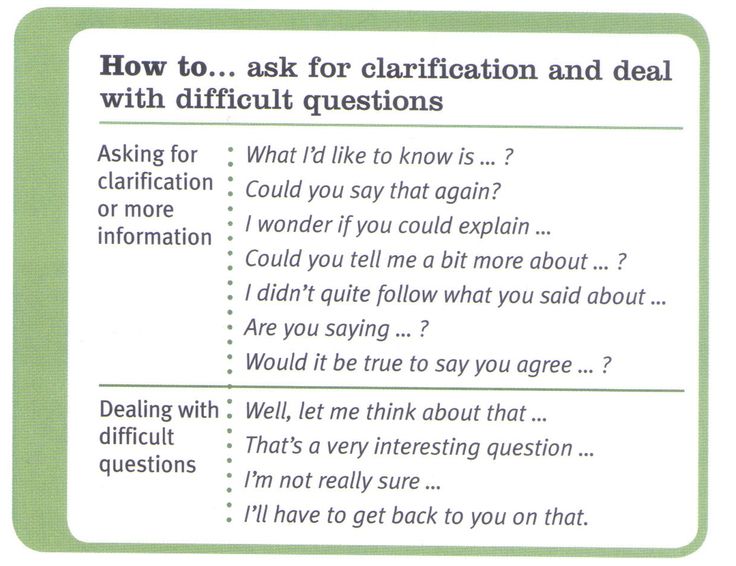
“Do what you know works,” recommends Weaver-Breitenbecher. “Like meeting friends for dinner? Do that now. Feel good when you volunteer at the local animal shelter? Go read to some dogs. Need to focus on your physical health in order to regroup? Get to the gym.”
Denver-based counselor Amanda Conroy suggests being intentional in gratitude.
“Write down all you are thankful for and what is going well in your life,” says Conroy. This exercise will give you hope and uplift your spirit. […] Engage in activities that are fun and joyous. Be mindful and sit with the positive feelings when engaging in these activities.”
Schroeder recommends taking challenging situations one step at a time. “Breaking down significant events into smaller, more manageable parts is an essential and adaptive part of survival. We have to find those coping techniques that are natural and healthy for us to survive.”
A mental health professional can help you sort out your feelings and develop coping strategies.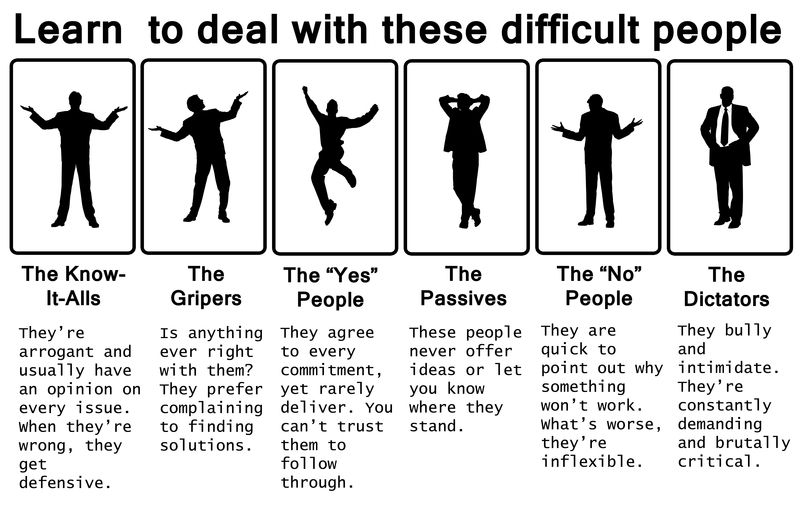 They can also become a safe space where you feel supported while working on an actionable plan to get through hard times.
They can also become a safe space where you feel supported while working on an actionable plan to get through hard times.
Going through hard times is part of the human experience. Even if they feel challenging, they won’t be permanent most of the time. If they are, there are ways to cope with them effectively.
If you’re experiencing a tough time, consider changing your perspective to focus on what aspects of the situation you can control to feel better.
Reaching out to the community or loved ones for support, adding healthy rituals to your ritual, letting yourself feel all the emotions, and seeking professional help can all be important steps when navigating these difficult times.
5 ways to get through hard times
115,674
Practices how to
1. Train yourself to be happy
The ability to be happy is nothing but a habit. “If you can’t take the positive out of what’s happening and only remember the bad, the neural pathways that are responsible for good news aren’t activated in the brain,” says psychotherapist Philippe Peri, author of How To Stay Sane.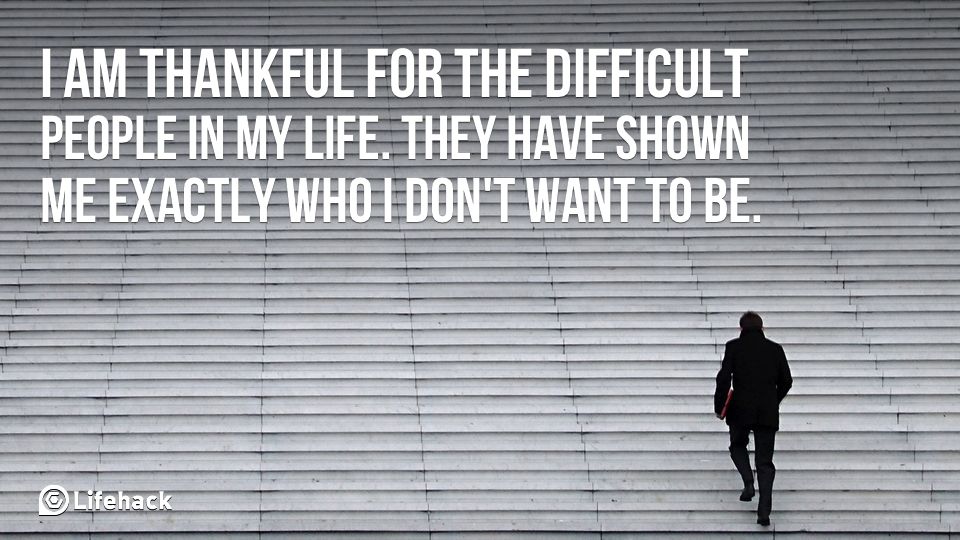 "If the brain isn't used to receiving good news, it doesn't have the neural pathways to produce it on its own." nine0003
"If the brain isn't used to receiving good news, it doesn't have the neural pathways to produce it on its own." nine0003
It turns out that we ourselves program our well-being. Optimism is a matter of practice. You need to consciously look for, notice and remember what pleases, then a good mood will be with you more often than a bad one. One way is to ask positive questions that open, rather than close, the door of opportunity. In almost any situation, you can ask yourself: what is good about this experience? This is a quick way to change your mood and thoughts with gratitude.
2. Bad is as valuable as good
“Perhaps you are afraid that believing in the best will make you vulnerable and attract unhappiness,” continues psychotherapist Philippa Perry. “The key is to train yourself to accept feelings that can hurt, not avoid them.”
Being ashamed or avoiding an experience means getting stuck in some kind of unlived experience
The American writer, Nobel laureate in literature Toni Morrison said this very accurately: “I want to feel what I feel.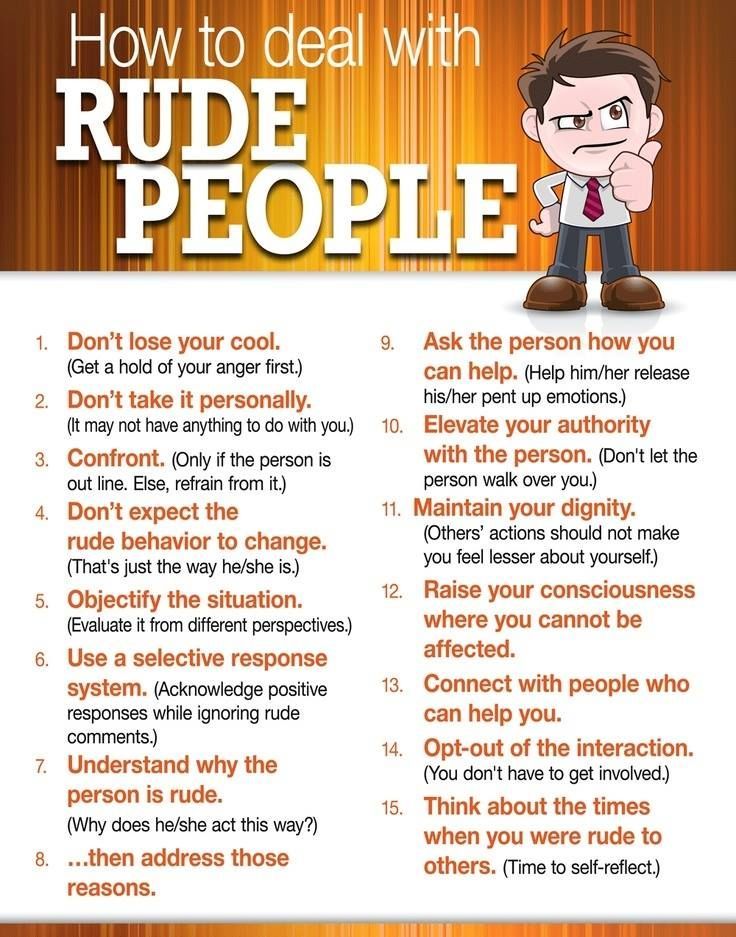 What belongs to me. Even if it's not a feeling of happiness. Because you are all you have." To be ashamed or to cross out experiences, to run away from them because they hurt, means to get stuck in some kind of unlived experience, depriving yourself of the opportunity to learn an important lesson so that it does not happen again in the future. nine0003
What belongs to me. Even if it's not a feeling of happiness. Because you are all you have." To be ashamed or to cross out experiences, to run away from them because they hurt, means to get stuck in some kind of unlived experience, depriving yourself of the opportunity to learn an important lesson so that it does not happen again in the future. nine0003
3. Giving up is better than hitting a wall
In an old 1934 book, You Can Master Life, Rev. James Gordon Gilkey gives amazing advice. When you go through a difficult life experience, the first impulse is to try to explain, to find the reason why what happened happened. Usually this only provokes confusion, despair and self-pity.
Most difficult situations in life cannot be explained - they can only be endured, overpowered and gradually forgotten. As soon as we give up trying to find a reasonable explanation, the tension inside gives way to silence, and it helps to find a way out. nine0003
“Why is this so hard for many people? the priest asks.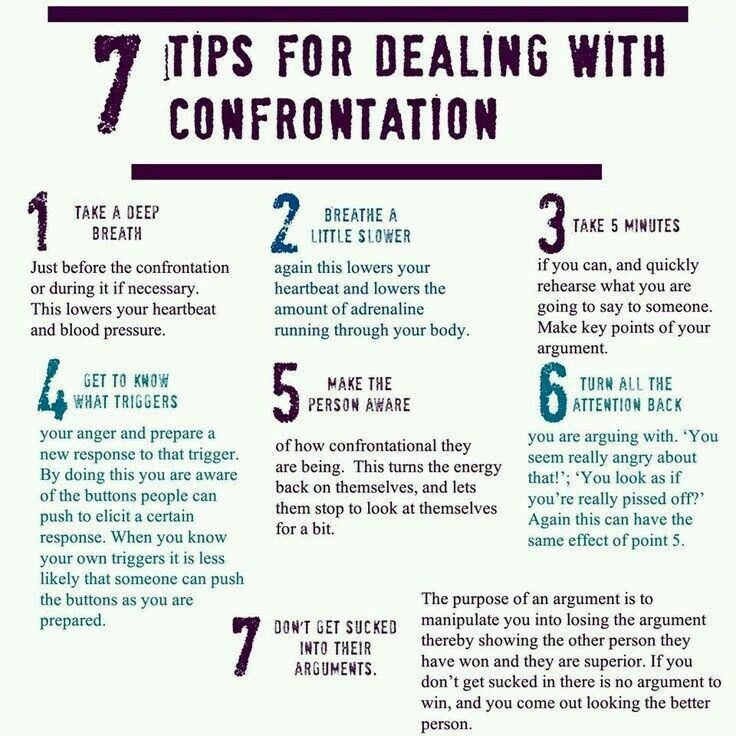 ‒ Because from childhood we were told: to win means to fight and destroy. This is what happens when you are young. Many of the hardships we face in adolescence tend to be short-lived, and a combination of heroic courage, strong will, and perseverance helps overcome them.
‒ Because from childhood we were told: to win means to fight and destroy. This is what happens when you are young. Many of the hardships we face in adolescence tend to be short-lived, and a combination of heroic courage, strong will, and perseverance helps overcome them.
But the situation changes with age. We find prison walls in our little world that no hail of blows can destroy. Within these walls, we must spend our day - happily or with hatred in our souls. In the new circumstances, we must consciously change the technique of youth. It is necessary to achieve victory not by attacking the walls, but by accepting them. nine0003
4. Shift your focus from yourself to others
In Christianity, one way to feel better when you're feeling down is to pray for others. It is not necessary to be a religious person to wish something good to a stranger passing by and feel relieved yourself.
All emotions come down to two main ones: love and fear.And they can't exist at the same time.
The author of The Trick of Life in the New York Times writes that it helped him cope with panic attacks. nine0003
“I sat down on a park bench and began to pray… I prayed for a nanny who was pushing a stroller with a baby in front of her, for a young woman who was jogging next to them in the morning, for a little boy who pedaled a bicycle nearby. I prayed that each of them would always have what I wanted for myself: health, peace of mind, financial stability. By focusing on others, I realized that my problems were no different from the problems of other people, and they stopped putting pressure on me. nine0003
5. To love, not to be afraid
“In the end, all emotions come down to two main ones: love and fear,” says psychologist Olga Prokhorova. “Moreover, they cannot exist in the soul at the same time. In every situation, we make a choice: love (believe, accept, invest, give, care for) or fear (distrust, run away, take away, attack, manipulate). ”
If you choose to love, then you drive fear out of your soul, if, on the contrary, you sink deeper and deeper into the abyss of horror, where there is no place for love. Every time fear kicks in, you can say to yourself, “I choose to love over fear.” This short mantra can be used as an auto-training. nine0003
Text: Ksenia Tatarnikova Photo Source: Getty Images
New on the site
“I ran away from an abuser. She lowered my self-esteem to the bottom"
Why it's so important to feel irresistible: scientists have found an unusual answer
Fart during orgasm: why it's normal, sexologist explains
How to sleep: 6 common mistakes - advice from a beautician
Love at a distance : how the feelings of de Maupassant and Bashkirtseva were born and developed
"A stranger to yourself": how to understand that you are running from reality
"I no longer have the strength to fight depression" endorphin
Five tips to help support a person in a difficult situation
It happens that a difficult moment happens in life and it is almost impossible to get out of a difficult situation on your own. Often people give up, despair sets in, depression sets in. How to choose words that will convince you that Sun is e will be okay? Tatyana Moroz, a specialist at the Western Degunino Family Center, has prepared five tips to help build a conversation.
Dangerous words
Refrain from mentioning such words as "endure", "put up", "don't cry", "stop" and other similar in meaning.
Do not advise the person to "pull yourself together" and promise him that "it will never happen again." « It would be a big mistake to tell an already depressed person about all his problems or imagine an even more complicated situation that could happen to him. Such a conversation can somehow devalue the experience of the interlocutor. You make it clear that he cannot count on your support, and he must overcome all difficulties and not complain ,” the specialist shares.
Receptions
- He will become calmer if he is a little quiet.
Sometimes this is better than starting an empty and unnecessary conversation.
- Be sincere. Sometimes it is enough to sit next to you, take a hand or hug.
- A great technique is to let a person talk and cry when he needs it.
- Provide real help. Ask how you can help him. Share his household duties with a loved one, provide financial assistance, help in solving some of his problems. nine0096
- Offer to go to a cafe or cinema, walk around the city, take a vacation and travel. So a person can distract from oppressive thoughts and focus on the good, get new positive emotions.
Support in difficult times
Words of gratitude
Thank the interlocutor for being able to tell about his experiences. Let him know that his feelings, as well as successes and mistakes, are important to you. You will readily share every occasion with him, be it joyful or sad. nine0069
I understand your pain
If you have experienced a similar situation, you can tell me about it. Say that you have been in a similar situation and know how difficult it is to endure such adversity. Tell us about how you can deal with such problems. You can share your memories of the troubles experienced and make it clear to the person that he will not be left alone with his misfortune.
It's hard to imagine how you feel now
If you have not experienced similar situations, then do not be afraid to tell your interlocutor about it. Say that you can’t even imagine what he feels now, but you are ready to share all the troubles with him. Be sure to let them know that you admire his firmness and willpower.
I really sympathize with you
Phrases that can express sympathy and empathy will help you.
Say " I'm really sorry you got into this situation", "It's not fair" or "You deserve better ".

